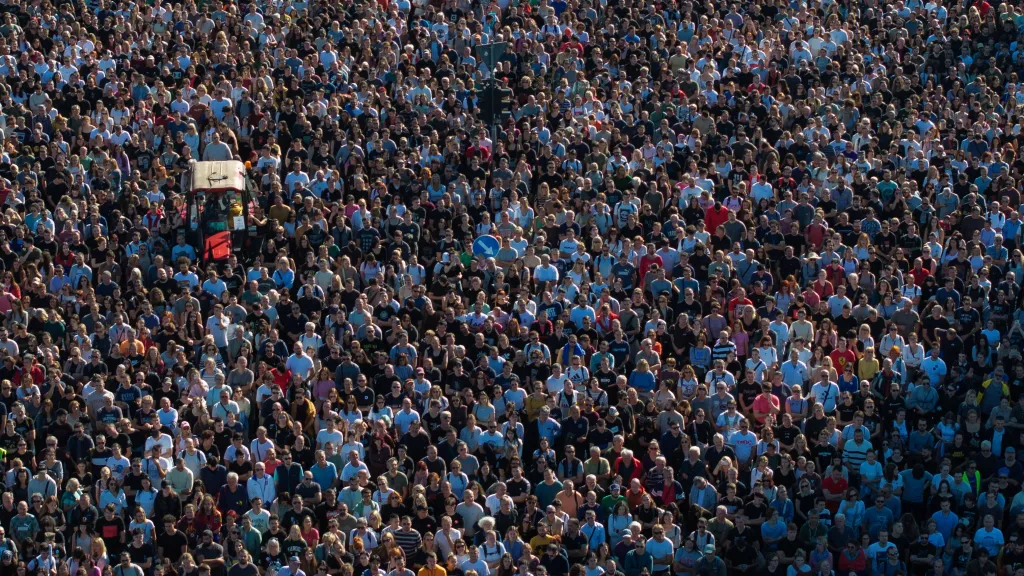
Serbs commemorate the death of sixteen people in Novi Sad
Source: Reuters/Marko Djurica
Tens of thousands of people from across Serbia have gathered in Novi Sad to demonstrate and honor the memory of the 16 victims who died exactly one year ago when the roof of the local train station collapsed. The tragedy sparked a protest movement that has rocked the Balkan country ever since. The Serbian cabinet has declared November 1 a national day of mourning.
Protest marches quietly set off from sixteen locations in the city of several hundred thousand people. They headed towards the train station, where they observed sixteen minutes of silence in honor of the victims from 11:52 a.m., the day the accident occurred a year ago.
Unlike previous demonstrations, there were no whistles or flags, just occasional black banners. One of them read “Pamtimo” (We Remember). People laid wreaths and lit candles around the station. “We are here to pay our respects and express our sorrow,” Vera Jaramazovic, who came from the northern city of Subotica, told the AP. “This society is suffering, it is suffering very much,” she added.
Protesters believe that the concrete structure of the renovated Novi Sad train station building collapsed a year ago due to rampant corruption and nepotism that led to a disregard for safety rules. No one has been held accountable for the roof collapse or the deaths of innocent people, although thirteen people have been charged.
The main force of the protest movement is students
Demonstrations continued in Novi Sad on Friday evening. Thousands of people from across the country gathered in the streets of Serbia's second-largest city to express their dissatisfaction with the government of President Aleksandar Vučić. Farmers on tractors, bikers and cyclists formed a solidarity column that passed through the city. The main driving force of the protest movement is students. According to other protest participants, the young people managed to awaken society's interest in public affairs. On the eve of the anniversary, Vučić called for dialogue between the camps.
The cause of the tragedy on November 1st last year is still under investigation, but the event nevertheless sparked protests that have lasted almost the entire past year. Saturday's massive memorial demonstration is intended to be a confirmation of the growing opposition demands for fundamental changes in the Balkan country. The protest movement is demanding, among other things, early elections and democratic reforms. The mandate of the president and parliament ends in 2027.
President Vučić has threatened mass arrests if protesters resort to violence on Saturday. Most of the protests have been peaceful so far, with occasional incidents caused by Vučić's supporters.
Vučić, who in the past has not hesitated to label protesters as terrorists - only to call them for dialogue - repeats that foreign powers are behind the protests, but has not specified which ones. On Friday, the president apologized to the students for repeatedly insulting them, including repeatedly referring to them as Nazis who want to destroy the Serbian state.
